TLDR: Climate change feedback loops are hammering the global economy, adding to the inflationary and recessionary pain of Covid and the war in Ukraine. Europe’s drought was declared the worst in 500 years overnight as German and French factories hit by higher electricity costs reported output in recessionary territory.
Meanwhile, China closed shopping centres, turned off light displays and ordered factory closures because of hydro-electric power shortages from the worst drought it has experienced in 50 years.
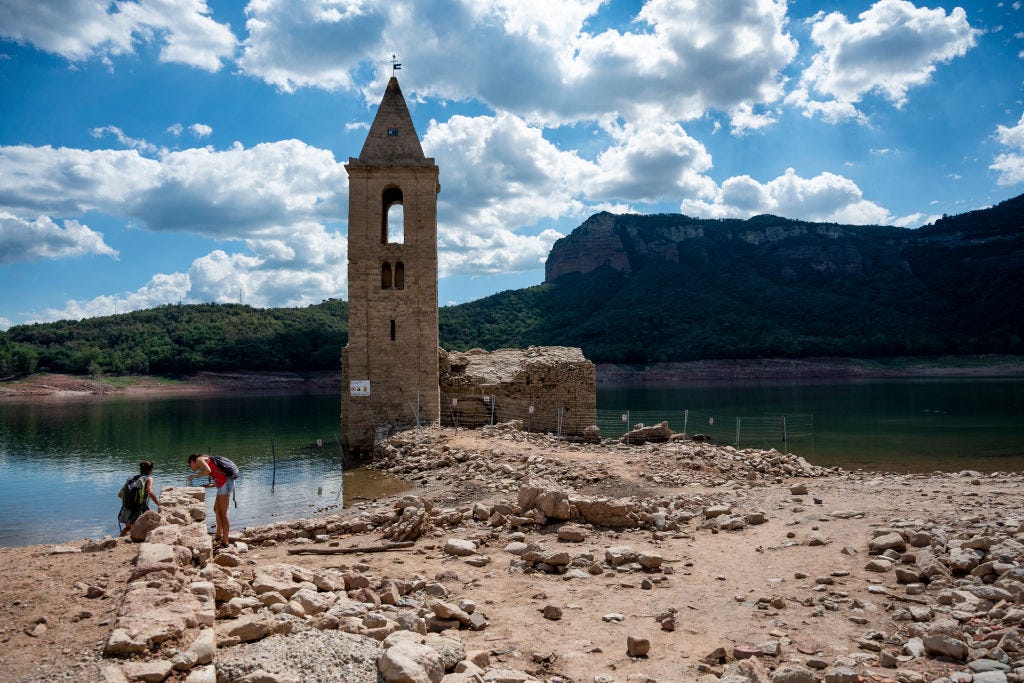
The climate feedback loops hammering the global economy
Climate change is on our minds here in Aotearoa-NZ because we’re experiencing one of the wettest winters on record, powered by an ‘atmospheric river’ reaching down from the tropics. CoreLogic and MunichRe forecast overnight weather-related insurance claims would rise as much as 30% per year by 2050.
Meanwhile, Europe and China are suffering their worst droughts in 500 years (BBC) and 50 years respectively, which is creating all sorts of feedback loops for their economies and the climate.
China was forced overnight to shut shopping malls and factories throughout its southwestern region because drought was starving its hydro-electric power plants of water. That is adding to the economic pain of its Covid lockdowns and a crash in its property development sector.
Across the northern hemisphere, the European Union declared the continent was in the midst of its worst drought in 500 years and it would go on for months to come. Rivers used for transporting coal and other products throughout Europe have drained so much that barges can’t go down them, compounding the logistics pain from Covid and the war in Ukraine. Portugal and Spain are experiencing their worst wild fires in history, which is throwing yet more carbon into the atmosphere.
France and Germany both reported slumps in factory production overnight, due largely to higher electricity costs linked to Europe’s reliance on gas and coal. To make matters worse, France has had to cut back on nuclear power production, which it relies on and in theory should be renewable, because of insufficient water for cooling due to the drought.
If there’s any doubt that climate change won’t disrupt the global economy and ours, this year’s droughts, fires, floods and storms have already compounded the damage wrought by Covid and the war in Ukraine.
Elsewhere in the news here and overseas this morning:
In geo-politics, the global economy, business and markets
Cooling US and European economies - S&P Global reported overnight that European factory production fell in August. In the United States, reported new home sales fell to their lowest level in four and a half years in July and S&P’s ‘flash’ factory activity measures for August showed a second month of contraction. US interest rates fell, which prompted a rise in the Nasdaq this morning. Reuters
Also, Julian Robertson died, Macy’s downgraded its profit outlook and the Australian-$$$ reported Fonterra was considering a A$1.5b float of its Australian assets.
In our political economy and business
Green shoots - Tony Alexander’s survey of mortgage brokers found a net increase in first home buyer inquiries in August for the first time in a year. The survey also found brokers saying banks were more willing to lend than at any time since November 2020.
Supermarket action - Later today the Government is expected to announce the details of its regulatory backstop that would force the two supermarket operators to open up their wholesaling operations to rivals.
Today’s must read
Speaking of feedback loops, I’d recommend this piece in the FT1 because it goes in depth into a tipping point feedback loop for methane, which is the most potent climate warming emission, even if it is the shortest lasting.
Chart of the day
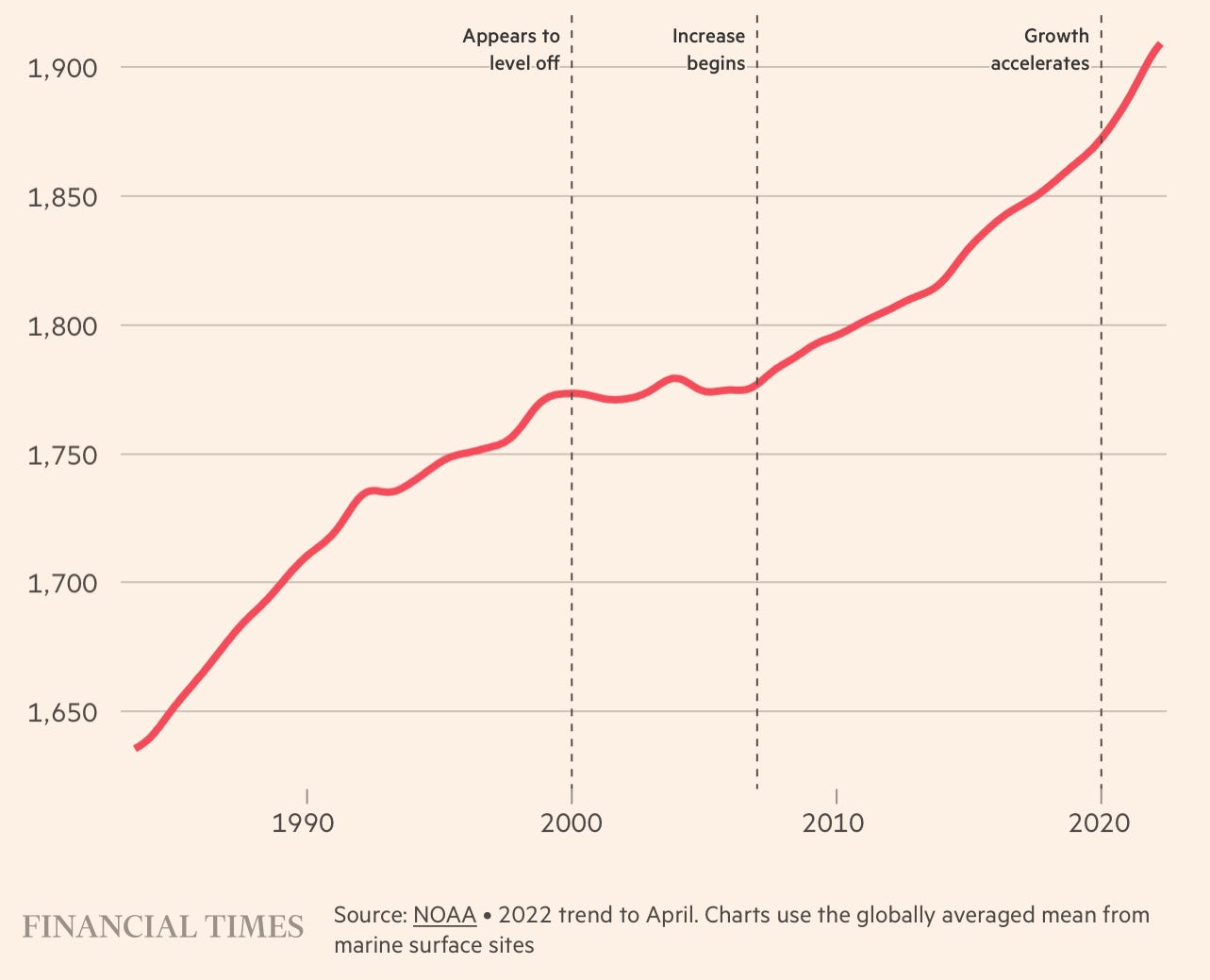
Quote of the day
“If you think of fossil fuel emissions as putting the world on a slow boil, methane is a blow torch that is cooking us today. The fear is that this is a self-reinforcing feedback loop . . . If we let the earth warm enough to start warming itself, we are going to lose this battle.” Durwood Zaelke, president of the Institute for Governance & Sustainable Development, and an advocate of stricter policies to reduce methane emissions via today’s Must Read in the FT
Some fun things
They’re back!
Ka kite ano
Bernard
This is a ‘gift’ link that can be opened three times. I’ll put fresh gift links in the comments below if it gets ‘used’ up. Just sing out in the comments and I’ll put them in. I’m happy to blow my 20 gift links for the month. It’s that good.




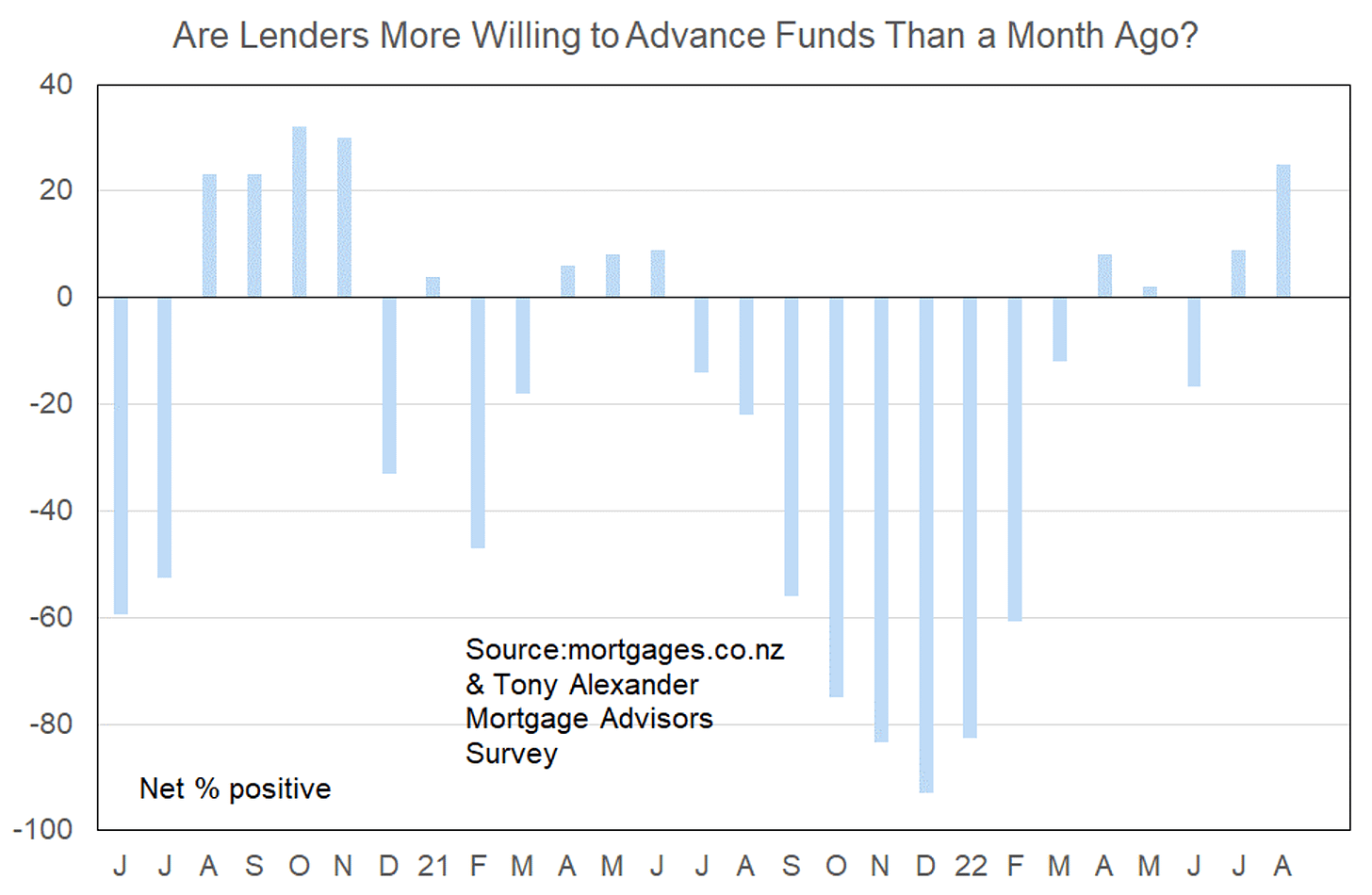









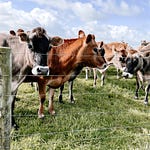

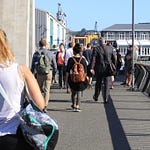
Climate feedback loops rocking global economy